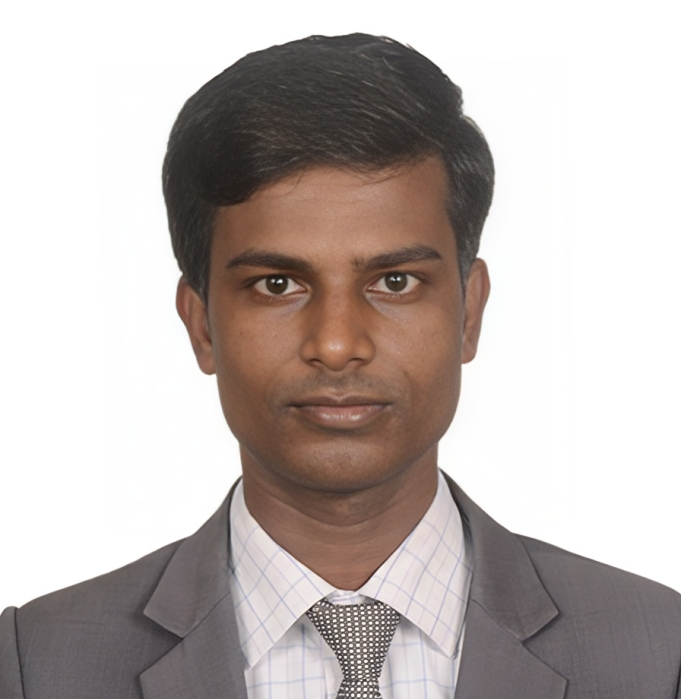This interview has been published by Anshi Mudgal and The SuperLawyer Team

You’ve advised on major infrastructure, real estate, and cross-border commercial transactions across India and Southeast Asia. How has this international exposure influenced your approach to corporate legal practice?
Advising on major cross-border transactions in Southeast Asian Countries including Laos, Cambodia and Myanmar has significantly shaped my approach to corporate legal practice in three key ways: adaptability, cultural intelligence, and risk sensitivity.
Working across jurisdictions each with its own regulatory landscape, commercial norms, and legal frameworks requires a flexible, solution-oriented mindset. I have learned to quickly assess unfamiliar legal systems and align them with international best practices, ensuring seamless integration for clients operating in multiple markets. Cross-border deals are not just about laws they are about people, relationships, and negotiation styles that vary widely across Southeast Asia. Understanding these nuances has allowed me to anticipate counterparties’ priorities and negotiate more effectively, often bridging gaps that go beyond legal language.
I remember, in the beginning of my career, I was a part of foreign lawyers team, where we used to discuss best practices in various jurisdictions. We use to work collaboratively with local counsel to structure transactions that are both legally sound and commercially viable. Overall, this international experience has reinforced a pragmatic, forward-thinking approach to corporate law balancing legal precision with commercial acumen, always with a view toward helping clients achieve cross-border growth sustainably.
Having worked on joint ventures, franchise agreements, and market entry strategies in countries like Cambodia, Myanmar, and Laos, what legal or regulatory challenges do you think foreign investors often underestimate in these markets?
In my experience advising on joint ventures, franchise agreements, and market entry strategies in countries like Cambodia, Myanmar, and Laos, foreign investors often underestimate several legal and regulatory challenges, particularly in three areas: regulatory opacity, local partner risks, and enforcement/judicial system. Investors often assume that laws, especially investment and company laws are fully codified and consistently applied. In reality, many regulations in these markets are underdeveloped, ambiguously worded, or enforced unevenly.
In joint ventures and franchise models, investors may overlook the importance of deep local due diligence. Investors sometimes don’t appreciate how vital it is to assess a partner’s political exposure, informal influence networks, or track record of compliance, not just their balance sheet. I have also done due diligence of local entities for JV transactions.
While contracts might be drafted to international standards, enforcement is a different story. Judicial systems in these markets may lack independence, speed, or the capacity to handle commercial disputes efficiently. Arbitration clauses are increasingly used, but enforcing foreign arbitral awards still comes with practical and procedural hurdles.
From securing mining permissions to resolving land litigation and facilitating tribal land sales, your work requires extensive coordination with government authorities. What strategies have proven most effective for you in managing complex regulatory and compliance issues?
Managing complex regulatory and compliance issues especially in areas like mining permissions, land litigation, and tribal land transactions requires a combination of strategic planning, stakeholder engagement, and proactive communication. initiating dialogue early in the process. Building trust and rapport helps in reducing delays and misunderstandings later. Collaborating with local consultants or retired officials who understand the ground realities and bureaucratic procedures helps in navigating procedural bottlenecks effectively.
With your diverse experience across jurisdictions and sectors, how do you stay abreast of rapidly evolving legal landscapes, particularly when advising on cross-border transactions?
I stay updated through leading international legal databases, newsletters from top law firms, and updates from regulatory bodies like SEBI, RBI, and international organizations.
For cross-border matters, I work closely with reputed local law firms in the relevant jurisdictions such as Lao Law and Consultancy. Their insights help ensure that advice is aligned with both local practice and international best standards.
Beyond black-letter law, I track economic policies, sanctions regimes, and trade developments that influence cross-border deal structuring and risk allocation. This enables more holistic legal advisory.
You’ve worked closely with operations and tech teams to streamline legal workflows. In your view, what role should technology play in modern legal practice, especially in areas like due diligence and contract lifecycle management?
Technology is no longer a support function, it’s becoming a core enabler of modern legal practice. Especially in areas like due diligence and contract lifecycle management (CLM), its role is transformative.
CLM platforms provide insights into contract performance, risk patterns, and renewal cycles. This allows legal teams to move from reactive to proactive governance and to offer business-aligned advice. Tech solutions can flag non-standard clauses, track obligations, etc. By offloading routine work to tech tools, legal teams can focus on higher-value tasks such as negotiation, risk strategy, etc.
What inspired you to pursue a career in law, and how did your time at Rajiv Gandhi National University of Law, including your Master’s specialization in Business Law, shape your legal perspective?
Coming from a family with no legal background, I often saw people around me struggle with legal issues due to a lack of awareness and access to proper legal guidance. I realized there was a gap and I felt a strong desire to bridge it. The idea of becoming the first in my family to step into the legal field gave me both a sense of responsibility and purpose. It inspired me to be a source of support not just for my family, but for others in similar situations. I wanted to break new ground and prove that even without a legal legacy, one can make a meaningful impact through dedication, learning, and service.”
My time at Rajiv Gandhi National University of Law (RGNUL) was pivotal in shaping this vision. The university’s strong academic rigor, coupled with exposure to national-level moot courts, legal aid work, and policy discussions, grounded my understanding of the law not just as theory, but as a practical force. RGNUL also offered a diverse peer network and faculty mentorship that encouraged critical thinking, debate, and an ethical approach to legal practice.
You began your career with an international legal consultancy which is a significant early achievement. What steps did you take to secure this opportunity, and what foundational lessons from that phase still guide your practice today?
Securing an opportunity with Lao Law & Consultancy (LLC) early in my career was the result of deliberate planning, consistent effort, and a focus on aligning my skills with global standards. During law school, I prioritized building a strong foundation in commercial and corporate law while simultaneously engaging in internships, seminars and research etc.
Foundational lessons from that early phase continue to guide my practice today. Understanding that legal advice must be commercially viable and actionable. Recognizing the importance of jurisdictional nuances and the need for precision in cross-border matters. Operating in a fast-paced international setting taught me to stay agile, culturally sensitive, and committed to lifelong learning.
In your current role, where you oversee land-related legal compliance and litigation for mining operations, what are the industry specific legal challenges you face?
Mining projects often span large, fragmented parcels of land, including private, government, forest, and tribal lands. Ensuring clear title, verifying ownership history, and addressing legacy encumbrances or informal claims requires intensive due diligence and strategic legal structuring. I was fortunate to advice and clear more than 600 Acres acquisition in Maharashtra for mining activities. Having previous experience in dealing with land acquisition and due diligence for renewable energy projects helped me a lot in mining projects as well.
A significant challenge lies in obtaining approvals for tribal land transfer, conversion of land from Class-II to Class-I. Obtaining approvals from Directorate General of Mines Safety (DGMS), Forest Departments etc. These processes are time-consuming, community-sensitive, and legally intricate. I was also witness to the Public Hearing for a mining project in Maharashtra.
Mining projects frequently face PILs, NGO-led litigation on grounds of environmental impact, displacement, or procedural lapses, litigation for land compensation enhancement. I have seen and studied more than 70 petition filed by local persons for land acquisition compensation enhancement.
The involvement of multiple authorities revenue, forest, tribal welfare, mining, Directorate General of Mines Safety (DGMS) and environment often leads to conflicting interpretations or procedural overlaps.
What advice would you give to students aiming to build an international legal career? Are there any resources or habits that have helped you stay ahead of evolving global legal trends?
Solid grounding in contract law, corporate law, and dispute resolution is essential. Prioritize analytical thinking and precision in legal writing skills that are universally respected across jurisdictions. Don’t limit your reading to national statutes. Study international treaties, arbitral awards, and cross-border case law to understand legal reasoning across systems. Intern with firms that handle cross-border work.Learn a foreign language if possible it can be a major advantage.
Lastly, stay curious and open to different legal cultures. An international legal career is not just about crossing borders it’s about bridging legal systems, people, and perspectives.
Get in touch with Sandip Bhosale –




